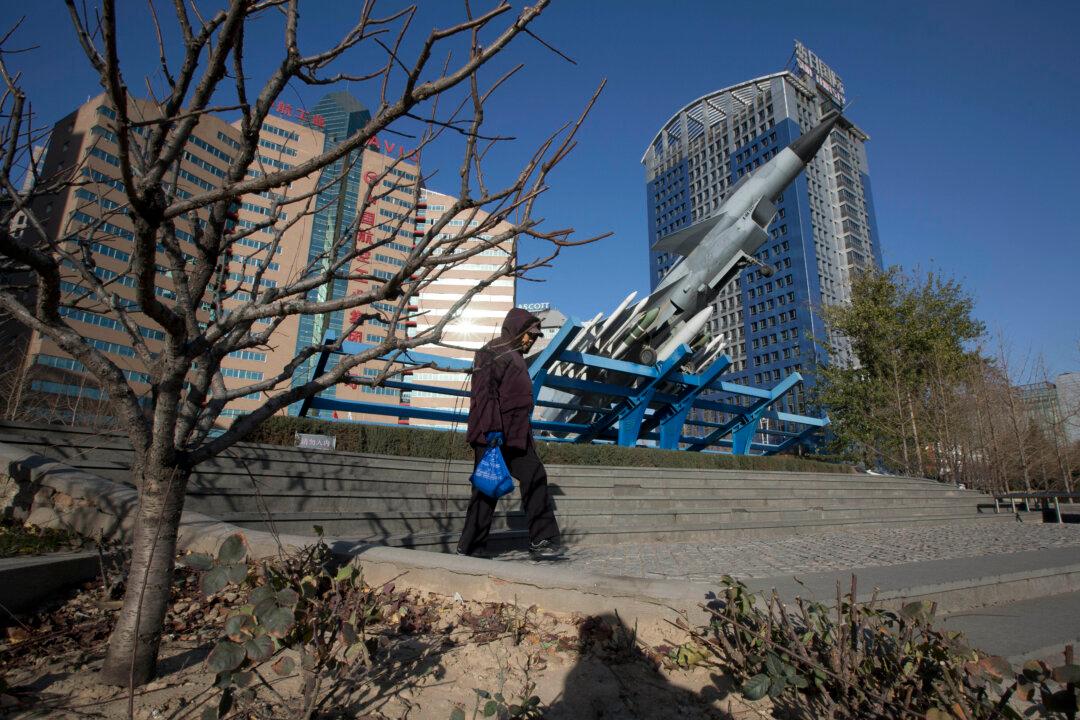China sent two fighter jets to follow American and Japanese planes on Nov. 28, as they passed through international waters that China is trying to lay claim to.
China’s Defense Ministry spokesman Col. Shen Jinke said Nov. 29 that the fighter jets identified 2 American planes and 10 Japanese planes, according to Voice of America.
An op-ed from Chinese state-run Global Times states, “If the U.S. does not go too far, we will not target it in safeguarding our air defense zone,” yet calls for a military response “without hesitation” if Japan enters the claimed air defense zone.
“We are willing to engage in a protracted confrontation with Japan,” the Global Times stated. It added that “there will likely be” confrontations between China and the United States, and said China has an “urgent task” to “train its air force to make full preparation for potential conflicts.”
While U.S. military planes will ignore Chinese warnings, on Nov. 29 American commercial airlines were advised to notify Chinese authorities if they plan to pass through the disputed region.
China established an Air Defense Identification Zone in the East China Sea on Nov. 23. It encompasses international waters shared by South Korea, Japan, Taiwan, and mainland China. It also encompasses the Japanese-owned Senkaku Islands, which China has laid claim to.
China is requiring all planes passing through the region to alert Chinese authorities and maintain radio contact, and has threatened emergency military measures against any who defy it.
The United States and its allies announced they will ignore China’s threats, however, and will not acknowledge the air defense zone. Just following China’s announcement of the air defense zone, the United States flew two B-52 bombers over the international waters. Japan and South Korea also flew military planes through the region soon after.
“Freedom of overflight and other internationally lawful uses of sea and airspace are essential to prosperity, stability, and security in the Pacific,” said a Nov. 29 statement from the U.S. State Department.
China’s state-run People’s Daily Online reported that China has deployed several aircraft to patrol the region. In addition to fighter jets, it also has planes to scout and monitor foreign aircraft. The publication paraphrases Chinese air force spokesman Col. Shen Jinke saying they would take necessary measures against any threat in the disputed region.
The Senkaku Islands, called the Diaoyu Islands by China, are part of the Ryukyu Island chain. They have been owned by Japan since 1895, came under U.S. control following World War II, and were returned to Japan in 1972. The Senkaku Islands had a private owner, but were purchased by Japan in April 2012.
China’s announcement of the air defense zone comes amid rising tensions between China and Japan over the Senkaku Islands. Chinese unmanned aerial vehicles had repeatedly entered Japanese territory, and last month Japanese Prime Minister Shinzo Abe gave orders to shoot down the unmanned vehicles if they refuse to leave Japanese airspace.
Chinese Defense Ministry spokesman Geng Yansheng said it would be an act of war if Japan shot down one of China’s unmanned vehicles.
Vice President Joe Biden is expected to discuss China’s air defense zone with Chinese leader Xi Jinping this week. A senior administration official said during a Nov. 27 press conference Biden will “make clear that the United States has a rock-solid commitment to our allies.”





